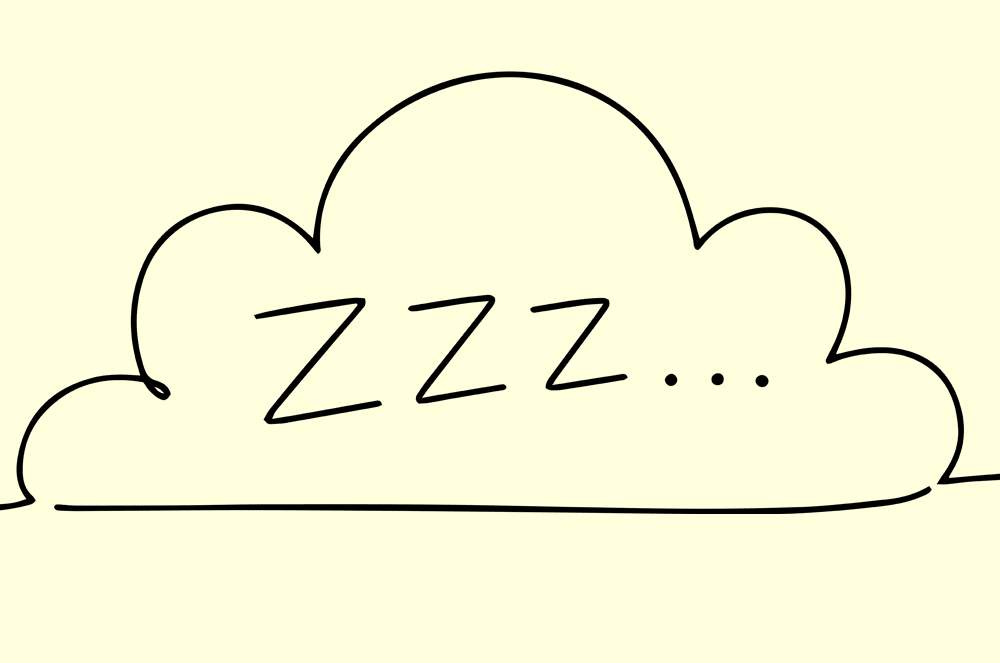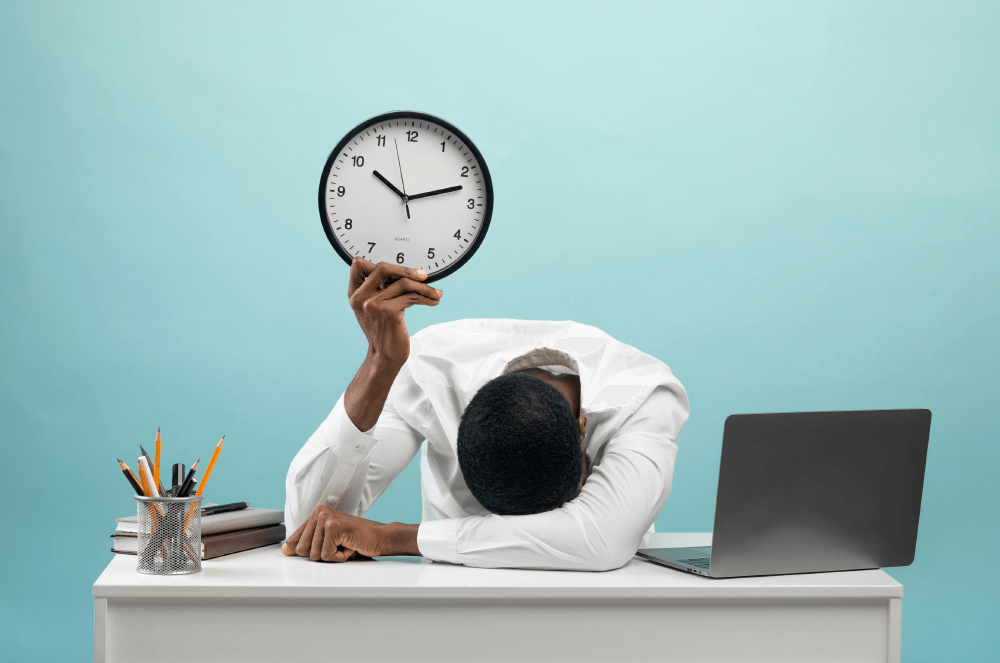
Have you ever called yourself lazy for putting things off? You’re not alone—but you’re probably wrong. There’s a reason behind laziness, and there’s also a way to fix that feeling.
We live in a world obsessed with doing. Hustle harder. Hack your productivity. Wear “busy” like a badge of honor. The message is everywhere: Keep going, no matter what. So when you can’t bring yourself to act, you don’t pause to ask why. Instead, you blame yourself, assuming, I’m just lazy.
But what if laziness doesn’t exist the way we think it does? What if what we label as laziness is something deeper, more human—and completely solvable?
The Illusion of Laziness
What does “laziness” look like in real life? Maybe it’s scrolling on your phone for an hour instead of tackling that overdue task. Or filling your weekend with productive chores and errands, yet struggling to drag yourself out of bed on Monday morning. Or telling yourself you just need more motivation, even though your mind and body are begging for rest, so you pour another cup of coffee or crack open an energy drink to push through work you’ve already been putting off for weeks.
You call it laziness. But is that really true?
As a health and performance coach, I’ve worked with athletes, entrepreneurs, and busy professionals for years. High achievers often label themselves lazy when they’re actually battling something else: deep fatigue.
Taking mental breaks and letting your mind wander also boosts insight and helps you connect ideas.
Think back to days when you were running on too little sleep, juggling endless tasks and decisions. Even a simple chore feels like climbing a mountain. Your brain fogs. Your body resists. You scroll on your phone, pretending to look for inspiration—or just to escape.
That’s not laziness. It’s your mind and body trying to survive the environment you’ve created: where you check your phone, your calendar, your messages—but rarely check in with your own energy.
When Your Battery Is Charged
When you’re rested, you feel capable. You see possibilities instead of obstacles.
You’ve probably noticed it: one night of truly restful sleep, and you wake up sharper and more energetic. Or you put your phone away early, spend the evening with family, or lose yourself in a good novel—and by morning, your mind feels clear again. Even saying yes to dinner with friends or a weekend break can give you the mental distance to solve a problem that stumped you for weeks.
Science backs this up. Research shows that sleep doesn’t just restore physical energy—it strengthens memory, sharpens focus, and can even double your chances of finding creative solutions to tough problems. Taking mental breaks and letting your mind wander also boosts insight and helps you connect ideas you’d otherwise miss when you’re grinding nonstop.
That’s why when your energy level is high, you don’t need to force motivation. Challenges excite you instead of scaring you off. Distractions lose their pull.
One client of mine used to call herself lazy because she kept putting off launching her business while working a demanding corporate job. But when we looked closer, she was surviving on five hours of sleep, running a household, trying to be everything to everyone—and putting herself last. Her days lacked clear structure, true priorities, and genuine recovery. The result? Zero energy left for her biggest goal.
We worked together to make some changes. We clarified what really mattered and set boundaries to protect her sleep and downtime. We rebuilt her schedule around her priorities—not everyone else’s.
Within six months, she launched her company, not because she magically found more motivation, but because we built a simple system. We started with proper sleep, added a quiet “morning clarity” routine involving journaling and a coffee while reading a few pages of an inspiring book, and included a relaxing weekly massage to recharge her. On top of that, we set clear priorities and a realistic daily structure to maintain her energy and pace long enough to turn plans into real action.
How Laziness Really Works
When you feel tired, you push through, telling yourself you just need more motivation. But pushing on empty drains you even faster. Small tasks feel bigger. Guilt creeps in. So you push harder—until you burn out.
This isn’t moral weakness. It’s how your mind and body protect you when you’re overloaded.
Beneath the surface, three silent drains pull you down:
- Cognitive overload: too many mental tabs open.
- Decision fatigue: exhausted by hundreds of micro-decisions.
- Emotional depletion: constant stress without proper recovery.

The result? You feel lazy, but actually, you’re uncharged.
I see this with nearly everyone I coach. We pretend life divides neatly into work and free time, but in reality, daily life is a jumble of chores, texts, kids, errands—all draining the same battery you need for your biggest dreams. Unplanned demands break your perfect plan, leaving you juggling everything and cutting the very habits that refill your energy: sleep, exercise, moments of calm.
One entrepreneur summed it up perfectly. He told me, “I wake up and grab my phone. I lose an hour to messages before I even stand up. All day I react to everyone’s needs—clients, suppliers, family. By night I’m too wiped out to train or plan tomorrow. I scroll, sleep too late, and wake up tired again.”
He didn’t need another push. He needed to recharge.
We started with basics:
- Phone-free mornings and evenings
- A daily 15-minute walk after lunch
- Offline weekends
- A planner (analog or digital) to clear his mind
Within weeks, he laughed, saying, “I get more done by doing less. My best ideas come while walking, not forcing them at my desk.” And having a physical planner allowed him to dump his thoughts in one place, allowing him to think more clearly and feel less stressed.
That’s the paradox: When you slow down wisely, you recover enough to speed up when it counts.
The Four Pillars of Real Rest
Scrolling your phone or watching TV might feel like rest, but be honest: Do you really feel recharged afterward? Or do you crash into Monday still wishing for one more day to recover?
Your body and mind drain on multiple levels—physical, emotional, and mental—so you need layered recovery to truly refill your tank.
Elite performers—from Fortune 50 founders to Formula 1 drivers—build recovery into their routines because they know peak performance demands full batteries.
They don’t rely on sleep alone. They protect four dimensions of rest:
- Relaxation: Try low-stimulation activities that calm your nervous system—breathwork, a warm shower, soothing music.
- Detachment: Step away from the problem space entirely. Take a walk without headphones. Leave your phone behind. Let your mind wander. Meet a friend.
- Mastery: Do something you enjoy and feel competent at, but unrelated to work or goals. Try a new hobby, learn a language, dance, paint, cook. It’s about learning something new and building fresh neural connections—driven by curiosity and play, not performance.
- Control: Structure your day intentionally. When you know what’s coming next, you cut decision fatigue and daily chaos. Clear routines help your brain feel safe and free up energy for what truly matters.
When you practice all four steps consistently, you don’t just feel better—you perform better. Every time.

Tips for Finding Energy
Even with all I have learned—having built my own offline business, far outside my comfort zone—I still catch myself working late, skipping workouts, and telling myself I’ll rest once my to-do list is done. But the truth is, the more I push when I’m already drained, the less creative, patient, and effective I become. Rest is what resets my best self.
If you’ve been beating yourself up for being lazy, you’re not alone. Rather than feeling guilty, find clarity as to what is going on. Ask yourself:
- Do I know exactly what to do next?
- Do I have the energy to begin?
- Am I steady enough to handle bumps along the way?
If you answer no to any of these, laziness isn’t your problem. Depletion is. But don’t worry. There are small, simple steps that you can start doing today to regain your energy and motivation. Try adding just one new habit:
- Go to bed 15 minutes earlier.
- Do a short breathing exercise in the morning or read a few pages before going to bed.
- Take a short walk without your phone.
- Sip a cup of tea while watching the world outside.
- Pick up a hobby you’ve always put off—even 10 minutes a day helps.
- Plan tomorrow realistically.
- Plan for tomorrow the night before to reduce anxiety and avoid draining your energy at the start of the day.
Little choices refill your energy. When your battery is full, your motivation returns, your thinking sharpens, and you feel ready for what comes next.
Protect your energy. Recharge on purpose. And watch how quickly your so-called laziness disappears.
Olya Amelina is a health and performance coach who helps athletes and business professionals develop daily routines that enable them to take control of their time, maintain high energy levels, and feel good while achieving their big goals. She lives in Germany. Learn more at LinkedIn.



 Previous
Previous

 Previous Article
Previous Article

